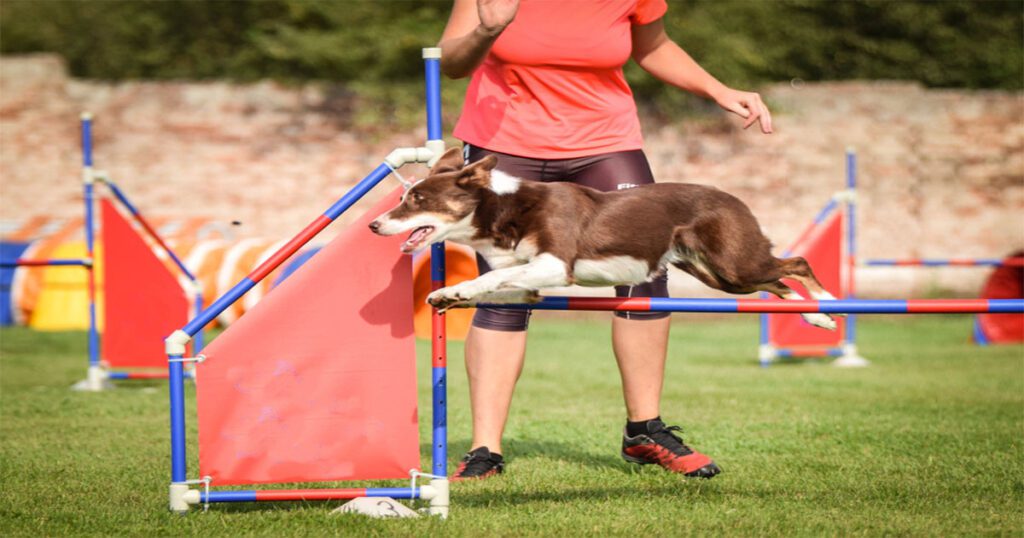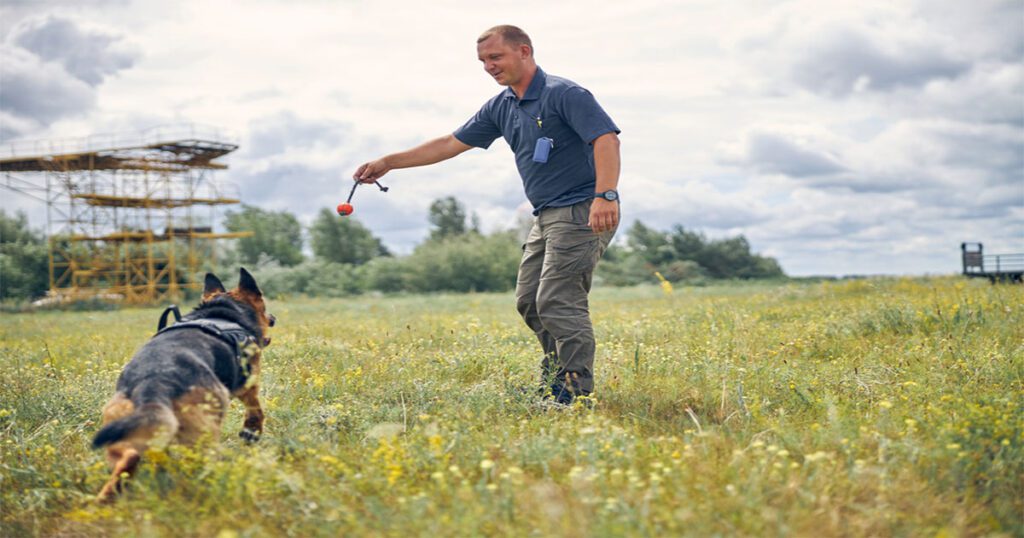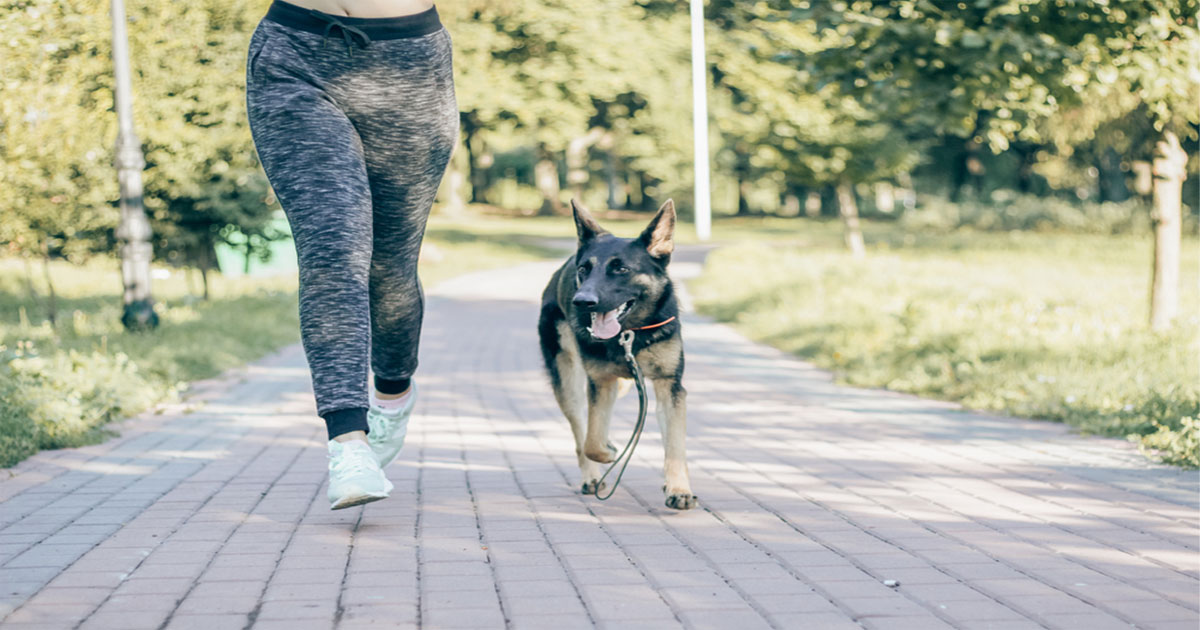Maintaining a healthy weight is crucial for the overall well-being of your German Shepherd. Just like humans, obesity in dogs can lead to a range of health issues, affecting their quality of life.
Helping your German Shepherd to lose weight requires a combination of proper diet and exercise. Here are some steps you can take: Consult with a veterinarian, Adjust the diet, Portion control, Treat alternatives, Increase physical activity, Monitor progress, Provide mental stimulation, etc.
In this comprehensive guide, we will explore the importance of maintaining a healthy weight for your German Shepherd and discuss common health issues associated with obesity in dogs. Let’s start.
Table of Contents
Why Your German Shepherd Has Gained Weight & What to Do
Gaining weight can be a concern for German Shepherds, but understanding the reasons behind it is essential to develop an effective plan.
Several factors can contribute to weight gains in German Shepherds, such as overfeeding, lack of exercise, and certain health conditions. Let’s take a closer look at these factors in the table below:
| Factors Contributing to weight gain in German Shepherds | What to do |
| Overfeeding | Evaluate your dog’s portion sizes |
| Lack of exercise | Establish a regular exercise routine |
| Health conditions | Consult with a veterinarian for a thorough examination and guidance |
Understanding Your German Shepherd to lose Weight
Recognizing signs of overweight or obesity in German Shepherds is crucial for timely intervention. Additionally, understanding the ideal weight range for German Shepherds is important to set realistic goals for weight loss. Let’s delve into these aspects:
Signs of overweight or obesity in German Shepherds can include difficulty in feeling the ribs, an excessively rounded abdomen, and reduced mobility.

The ideal weight range for German Shepherds can vary depending on factors like age, sex, and individual body composition. As a general guideline, adult German Shepherds typically weigh between 75 to 95 pounds for males and 60 to 80 pounds for females.
What’s The Correct Weight for a German Shepherd
Determining the correct weight for your German Shepherd involves assessing their body condition score (BCS). This score helps evaluate their overall body composition and whether they are underweight, overweight, or within the ideal range. As a general guideline, adult German Shepherds typically weigh between 75 to 95 pounds for males and 60 to 80 pounds for females.
Ideally, you should consult with a veterinarian to perform a thorough BCS evaluation and provide personalized guidance based on your German Shepherd’s specific needs.
Assessing Your German Shepherd’s Current Condition
Assessing your GSD’s current condition is a crucial step in helping German Shepherd to Lose Weight effectively. By measuring their body condition score (BCS) and consulting with a veterinarian, you can obtain an accurate assessment. Consider the following:
Measuring your German Shepherd’s body condition score
The BCS helps evaluate their body composition, considering factors like fat deposits and muscle tone. A veterinarian can guide you on how to perform this assessment correctly.
Consulting with a veterinarian
Seeking professional guidance is essential to accurately assess your German Shepherd’s condition. A veterinarian can provide expert advice, identify any underlying health issues, and suggest a tailored weight loss plan.
Creating a Plan for German Shepherd to Lose Weight
To help your German Shepherd achieve weight loss, it’s crucial to create a comprehensive plan that addresses their specific needs. Consider the following aspects when developing a weight loss plan:
Setting realistic weight loss goal
Collaborate with your veterinarian to establish achievable targets based on your dog’s current condition and ideal weight range.
Developing a balanced diet plan
Tailor a diet plan that incorporates high-quality, low-calorie dog food options. Ensure it meets their nutritional requirements while promoting weight loss.
Portion control and feeding schedule
Implement portion control by measuring food accurately and establishing a consistent feeding schedule to regulate calorie intake effectively.
Exercise and Physical Activity for German Shepherd to Lose Weight
Regular exercise plays a significant role in your German Shepherd’s weight loss journey. It helps burn calories, promote muscle tone, and enhance overall well-being. Consider the following when incorporating exercise:

- Designing an exercise routine: Develop an exercise routine that suits your German Shepherd’s abilities, considering their age, fitness level, and any underlying health conditions.
- Suitable exercises for weight loss: Incorporate activities that promote weight loss and muscle tone, such as brisk walks, jogging, swimming, or interactive games like fetch.
- Mental and physical well-being: Engage your German Shepherd in activities that stimulate their mind and provide mental enrichment alongside physical exercise. Puzzle toys and obedience training are great options.
Remember, every dog is unique, so it’s important to tailor the weight loss plan to your German Shepherd’s specific needs. Regular monitoring and adjustment, along with professional guidance, will ensure a safe and successful weight loss journey.
Avoiding Common Pitfalls
When helping your German Shepherd to lose weight, it’s important to be aware of common pitfalls that can hinder progress. By identifying and avoiding these mistakes, you can ensure a successful weight loss journey.
Identifying and avoiding common mistakes
Stay vigilant and avoid common pitfalls like over-treating, feeding table scraps, or excessive calorie intake from treats. Stick to the weight loss plan and resist the temptation to deviate.
Addressing emotional eating and food-begging behaviors
Some dogs may engage in emotional eating or exhibit food-begging behaviors. Provide mental stimulation, playtime, and affection to fulfill emotional needs without relying solely on food.
Dealing with plateaus and adjusting the plan
Weight loss plateaus are common. If your German Shepherd’s progress stagnates, consult with a veterinarian or nutritionist to adjust the diet and exercise plan accordingly.
Seeking Professional Guidance for German Shepherd to Lose Weight
Professional guidance is invaluable when it comes to your German Shepherd’s weight loss journey. Consider the following aspects:
- Consulting with a veterinarian or canine nutritionist
Seek expert advice from professionals who specialize in dog nutrition. They can assess your dog’s specific needs, monitor progress, and make necessary adjustments to the weight loss plan.

- The importance of regular check-ups
Regular veterinary check-ups are essential to monitor your dog’s overall health, track weight loss progress, and address any underlying issues that may impact weight loss.
Weight Loss Tips for Specific Situations
Addressing weight loss challenges in older German Shepherds:
- Consult with a veterinarian to develop a weight loss plan suitable for their age.
- Consider any age-related limitations and adjust exercise and diet accordingly.
Weight management for German Shepherds with medical conditions:
- Seek guidance from a veterinarian for a specialized weight management plan.
- Take into account any medical conditions that may impact weight loss.
Tailoring the weight loss plan for inactive or less mobile dogs:
- Choose low-impact exercises such as swimming or gentle walks.
- Adjust the diet plan to accommodate lower activity levels.
Frequently Asked Questions
Q: How long does it take for a German Shepherd to lose weight?
Ans: The duration for a German Shepherd to lose weight varies depending on factors like starting weight, desired weight loss, and individual metabolism. Typically, a healthy weight loss rate is around 1-2% of their body weight per week.
Q: What is the fastest way for a dog to lose weight?
Ans: The fastest way for a dog to lose weight is by combining a balanced, calorie-controlled diet with regular exercise.
Q: How do I train my dog to lose weight?
Ans: To train a dog to lose weight, focus on portion control, feed a balanced diet, and establish a regular exercise routine. Use positive reinforcement techniques during training and consult with a professional dog trainer if needed.
Q: Can a dog lose weight by walking?
Ans: Yes, walking is a beneficial exercise for dogs to aid in weight loss. Start with shorter walks and gradually increase the duration and intensity.
Q: How can I help my little dog lose weight?
Ans: To help a little dog lose weight, ensure they are on a calorie-controlled diet suitable for their size and activity level. Monitor portion sizes, provide regular exercise appropriate for their size, and consult with a veterinarian for guidance specific to small dogs.
Q: How to get my dog to lose 10 pounds?
Ans: To help your dog lose 10 pounds, develop a weight loss plan with a veterinarian or canine nutritionist. Adjust their diet to reduce calorie intake, increase physical activity with regular exercise, and monitor their progress closely to ensure a safe and gradual weight loss journey.
Conclusion
In conclusion, helping your German Shepherd to lose weight is a journey that requires dedication, commitment, and a holistic approach. By recognizing the importance of maintaining a healthy weight for your furry friend, understanding the factors that contribute to weight gain, and assessing their current condition, you can lay the foundation for a successful weight loss plan.
Creating a balanced diet, incorporating regular exercise, and avoiding common pitfalls will maximize the chances of achieving your German Shepherd’s weight loss goals. Additionally, seeking professional guidance from veterinarians or canine nutritionists and tailoring the plan to specific situations will ensure a safe and effective weight loss journey. With your love and support, you can help your beloved German Shepherd achieve optimal health and well-being while shedding those extra pounds. Good luck!

I’m David, an expert contributor and writer, with two furry friends of my own, I know the challenges of raising and caring for dogs. From training to nutrition and health, my goal is to provide valuable insights and advice to help create strong bonds and happy, healthy lives. Find me in Twitter.



